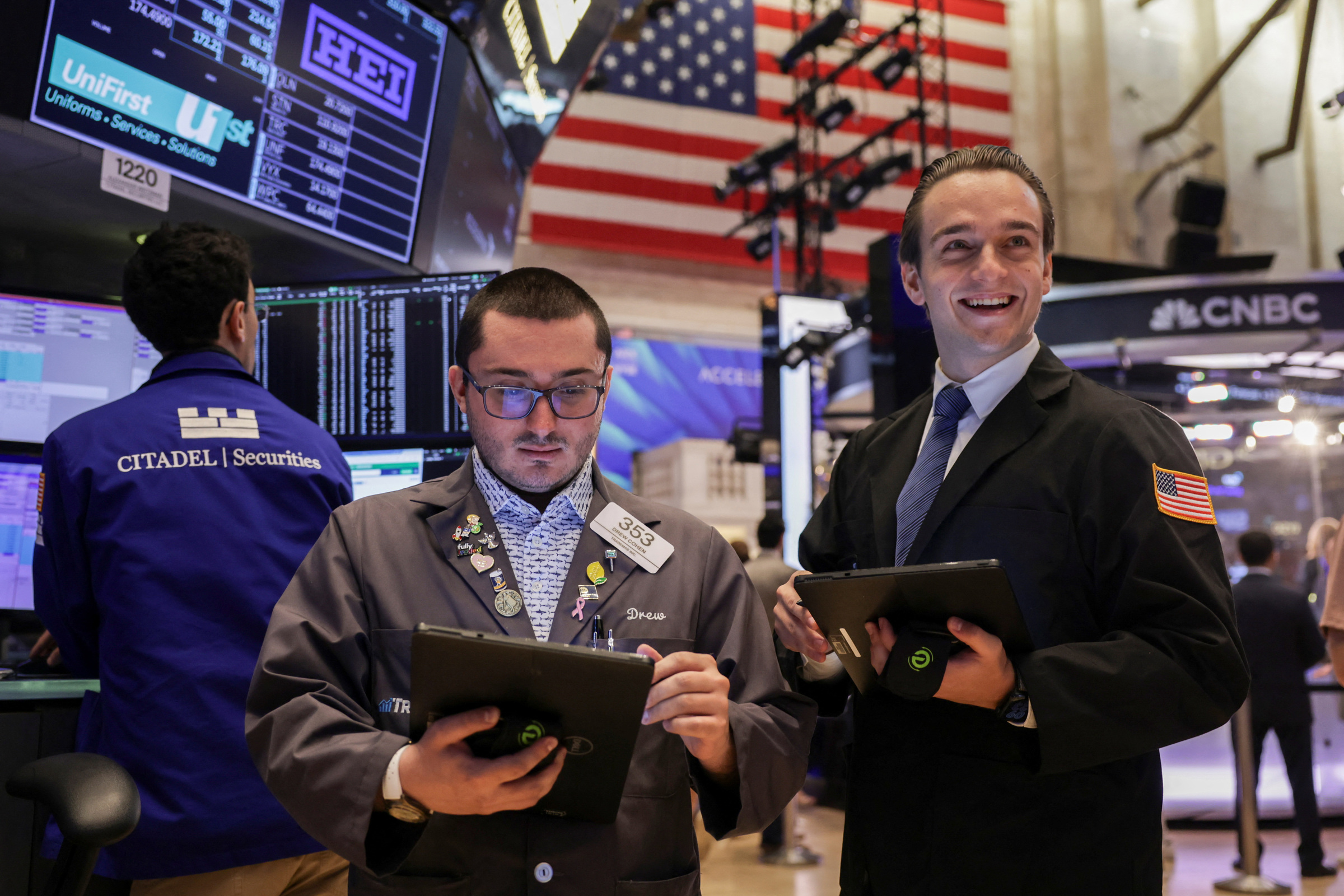At the close of trading on 13/8, the Dow Jones Industrial Average (DJIA) rose 1% to 44,922 points. The S&P 500 and Nasdaq Composite increased 0,3% and 0,1% respectively, both setting new record highs for the second consecutive session.
The market rallied after data showed US inflation in July rose slower than expected, reinforcing the likelihood of a Fed rate cut. The consumer price index (CPI) rose only 0.2% from the previous month and 2.7% year-on-year. This provided relief to investors as President Donald Trump's import taxes haven't significantly accelerated price increases.
 |
Traders on the floor of the New York Stock Exchange (NYSE). Photo: Reuters |
Traders on the floor of the New York Stock Exchange (NYSE). Photo: Reuters
According to CME's FedWatch Tool, investors are now predicting a nearly 100% probability of a 25 basis point (0.25%) rate cut by the Fed at its September meeting. The last time the Fed adjusted monetary policy was December 2024.
Chicago Fed President Austan Goolsbee said the Fed is still trying to assess whether import taxes will cause a temporary or long-term increase in inflation, as this will influence the decision on when to lower interest rates.
However, shares of some technology companies declined after a strong rally on 12/8. Nvidia, Alphabet, and Microsoft all fell as investors sought new growth drivers for the market.
Conversely, Apple shares rose 1.6% after Bloomberg reported that the company plans to venture into AI-integrated robots, home security, and smart displays.
Healthcare stocks, which have fallen sharply for most of this year, rose 1.6% on 13/8, making it one of the strongest performing sectors in the S&P 500.
Shares of CoreWeave, the Nvidia-backed AI data center company, fell nearly 21% after reporting a larger-than-expected quarterly net loss. In contrast, Paramount Skydance shares jumped 36.7% after the company secured exclusive broadcasting rights for the Ultimate Fighting Championship for seven years.
"Company valuations are rising. I think ultimately, the key issue is still business performance. And that's exactly what we're seeing," concluded Katherine Bordlemay, Head of Client Portfolio Management at Goldman Sachs Asset Management.
Ha Thu (according to Reuters)












